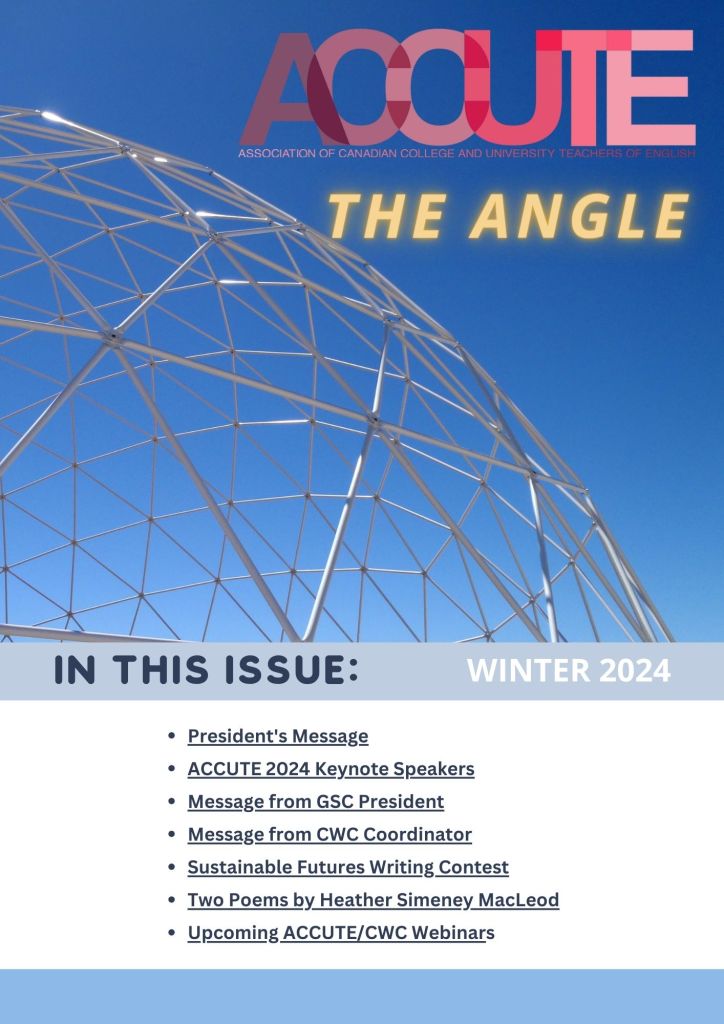Call for Papers
|
MJE Special Issue: Taking up the Calls to Action of the TRC in Teacher Education In making public the calls to action of the Truth and Reconciliation Commission of Canada (TRC) Senator Murray Sinclair noted that “Reconciliation is not an aboriginal problem, it is a Canadian problem. It involves all of us” (Sinclair, as cited in Off & Douglas, 2015). More than a year since the publication of the TRC’s final report (2015), we wonder how its Calls to Action are being taken up by all of us within teacher education. In this wondering we conceive of teacher education broadly. It is what occurs:
Our own conversations–with each other, with colleagues, with the students we teach–point to the complexity of the TRC’s calls, as well as what they do and do not explicitly address. We wonder how it is we might teach so that future generations “can live together in dignity, peace, and prosperity on these lands we now share” (TRC, 2015, p. 13). For this special issue of MJE we wish to open up these conversations, so that we can get a better sense of the complexity and range of processes set in motion by the Call to Action in the context of teacher education. We invite submissions that:
In keeping with the MJE’s section policies, we are seeking scholarly articles, notes from the field, and contributions to the MJE Forum that address the theme of the special issue. Contributions in English and French are encouraged and welcome. We welcome multimodal formats such as embedded video, image, or sound. We encourage submissions by K-12 educators, school administrators, Elders, researchers, teacher educators etc. For more information about the different types of submissions and please see http://mje.mcgill.ca/about/submissions#authorGuidelines. This special issue is of MJE is being organized by an editorial collective including: Lyn Daniels, Kawacatoose First Nation, Surrey School District Sandra Deer, Kanien’keha:ka, McGill University Dwayne Donald, Papaschase Cree, University of Alberta Bronwen Low, McGill University Dawn Wiseman, McGill University
Submissions are due June 15, 2017. Please submit your manuscript online (http://mje.mcgill.ca/about/submissions#onlineSubmissions), indicating that this is for the TRC special issue in the comments to the editor. For all questions, please contact Sylvie Wald, Managing Editor, at mje.education@mcgill.ca. References Off, C., & Douglas, J. (2015, June 2). “Reconciliation is not an aboriginal problem, it is a Canadian problem. It involves all of us.” As It Happens, CBC Radio. Retrieved from http://www.cbc.ca/radio/asithappens/as-it-happens-tuesday-edition-1.3096950/reconciliation-is-not-an-aboriginal-problem-it-is-a-canadian-problem-it-involves-all-of-us-1.3097253 TRC. (2015). Canada’s residential schools: Reconciliation, Volume 6. Montreal, QC: McGill University Press. Retrieved from http://www.myrobust.com/websites/trcinstitution/File/Reports/Volume_6_Reconciliation_English_Web.pdf |
Categories: Non ACCUTE CFPs, Uncategorized



